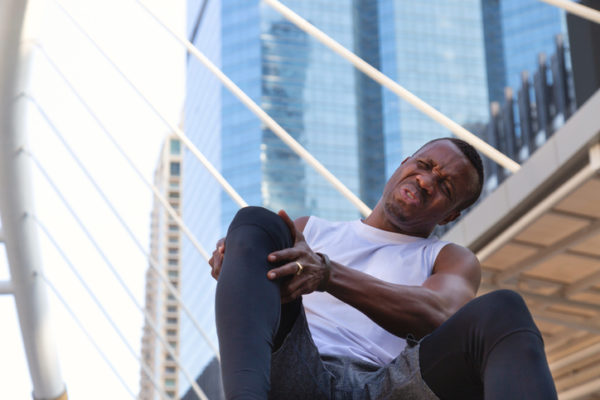
An orthopedic sports medicine doctor in NYC explains
Running is one of the most popular forms of exercise. It's great for your heart, lungs, and stress reduction. But is it bad for your knees?
The effect running has on your knees has been debated for years with many people asserting that the repetitive stress that running puts on a person's knees degrade the joint.
The doctors and medical professionals at Island Musculoskeletal Care (IMC Bone Doc) want you to know the truth about how running affects the body. Here are answers to questions we frequently hear from our patients. The information here is general. Contact our sports medicine doctors to learn more about your specific injuries and what we can do to help you.
Can running for exercise really damage your body?
In general, the answer here is "yes." Running offers many health benefits. There is also a lot an individual can do to reduce the impact running has on their knees and other joints. However, making errors while out for a run can do harm. Running isn't bad, per se, but running with bad form, poorly fitted sneakers, lack of rest, and/or pushing your body past the point of pain (aka overdoing it), often causes serious damage.
Don't everyone's knees get worse as we age? Is running really to blame?
Most people's knees degrade, slowly, as they age. Some studies say that runners actually have stronger knees than nonrunners because the burden they have put on their joints forced their knees to grow strong. If you already have bad knees, running may quicken the pace of knee cartilage deterioration.
Can I run if I already have bad knees?
It depends on how "bad" your knees are. If you experience mild knee pain, your knees may be fit enough for running. For the most part — and this goes for all runners regardless of knee strength or age — you need to listen to your body. Typically, discomfort is okay for the body, but pain is not. If you start to feel pain, that is your body's way of telling you something is wrong. Stop and rest. Then see a doctor.
Is running on pavement bad for your knees? Should I try running on grass or a treadmill?
Many people prefer running on grass or a treadmill compared to the pavement because the impact is softer on their knees. Running is a high-impact exercise and studies show that jogging or running on soft surfaces, like wood chips, may reduce stress on the tibiae. This, in turn, puts less strain on your knees.
Do I have to buy expensive running shoes to prevent knee damage?
Not all running sneakers are created equal, and there are good options at many price points. When selecting a running shoe you want to check things like cushion level, arch support, and width. Getting professional assistance selecting shoes from a local running shop may help you get the best fit for your needs.
If I have good running shoes, why does my knee still hurt?
This could be due to your running form. Achieving top running form takes a lot of practice and can be a detailed task. Basically, proper running form means keeping your back elongated and your arms at a 90-degree angle. Take quick strides with mid-foot strikes. Running on your heels damages your knees.
How do I know if I should see a doctor about my knee pain?
There are many types of knee injuries people can sustain while out for a run. If any of these sound familiar, it is most likely time to see an orthopedic doctor that specializes in treating musculoskeletal injuries.
Knee injuries for which you should see a doctor include:
- "Runner's knee" — This condition starts with pain in the front of the knee or around the kneecap while you are running. The strain put on your patella (knee cap) and femur (thigh bone) irritates knee cartilage.
- IT band syndrome — Pain or feeling of tightness in the outer knee may be a sign of an injury to your iliotibial band (IT band), which is a long tendon that stretches from your hip down to your outer knee.
- Jumper's knee — Aka patellar tendonitis, this condition describes front knee pain caused by an inflamed patellar tendon that connects your kneecap and shin.
- Bursitis — This condition includes inflammation and swelling in one of the small, fluid-filled sacs ("bursa") in the knee.
Don't do more damage to your knees. Talk to a doctor about your options.
If you are experiencing knee pain, the sooner you see a doctor the better your chances of recovery. Continuing to run with soar knees typically only does more damage.
Contact us today to schedule an appointment with one of our experienced doctors. You can make an appointment online or call 1-888-BONE-DOC (266-3362). Our medical practice is in-network and accepts most forms of insurance.
If you're looking for an orthopedic sports surgeon in New York, find out what our doctors can do for you.






















